Open Cup REWIND: 1995 Richmond Kickers Catch ‘Lightning in a Bottle’
We take a look back at the start of the tournament’s so-called Modern Era and the young men from Richmond, VA who kicked it off in style in 1995.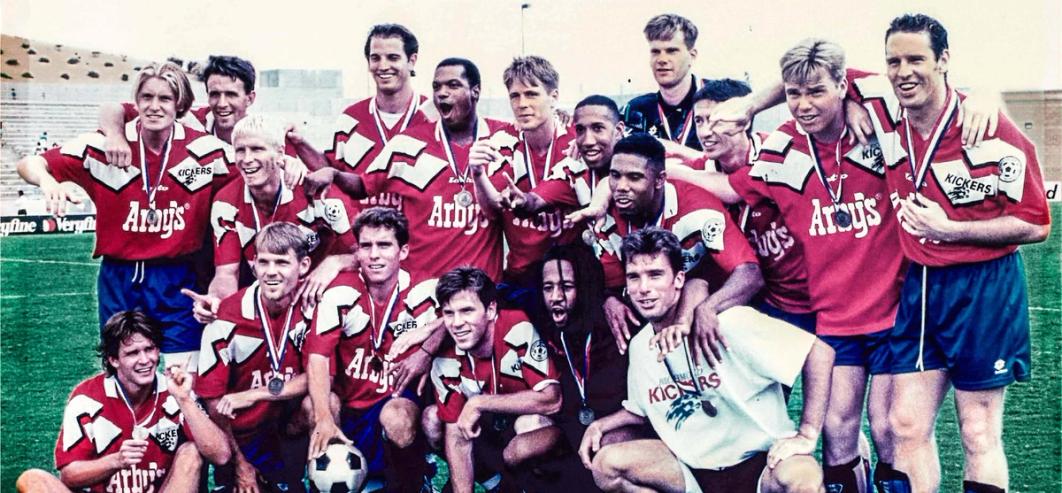
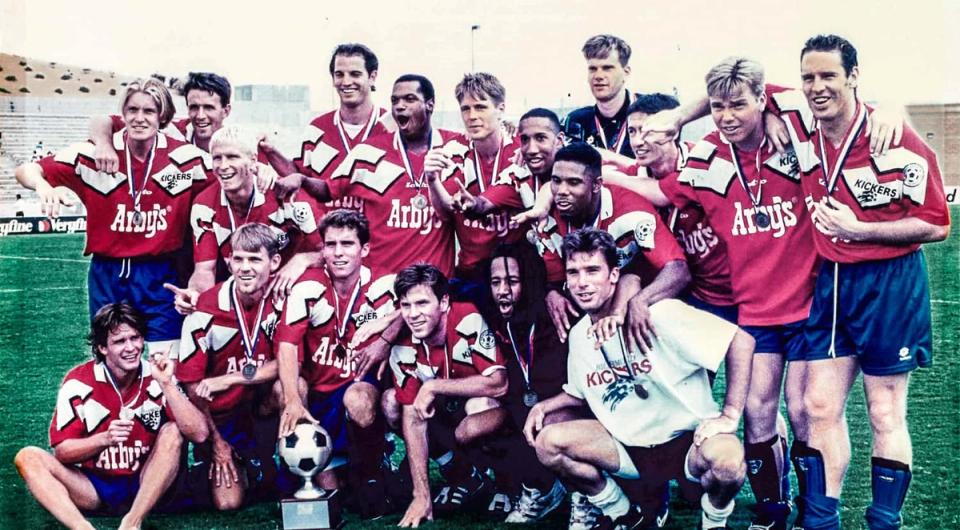


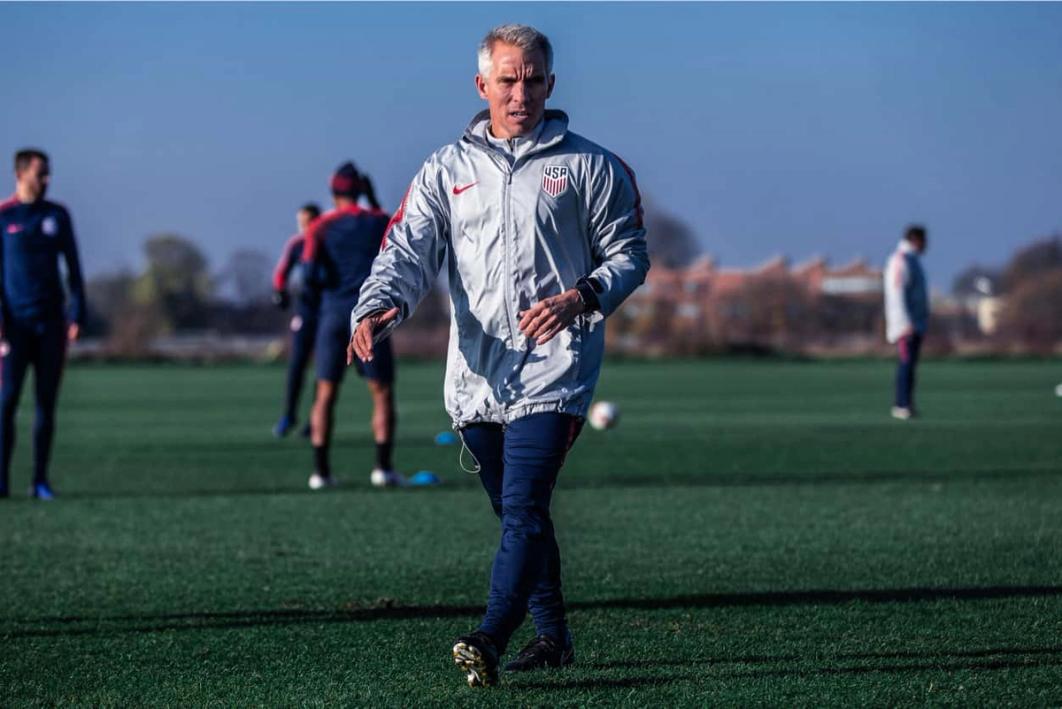
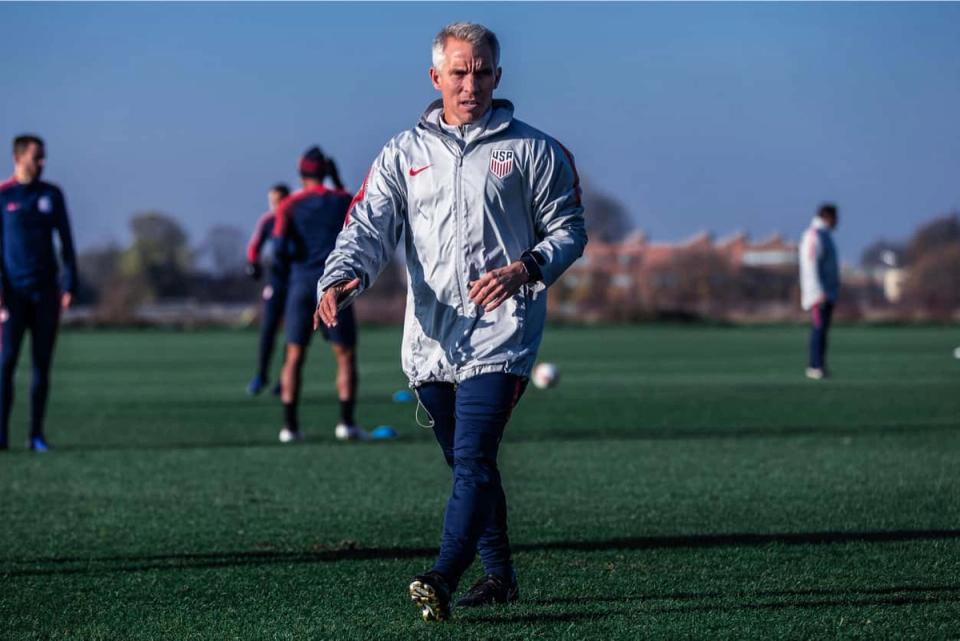
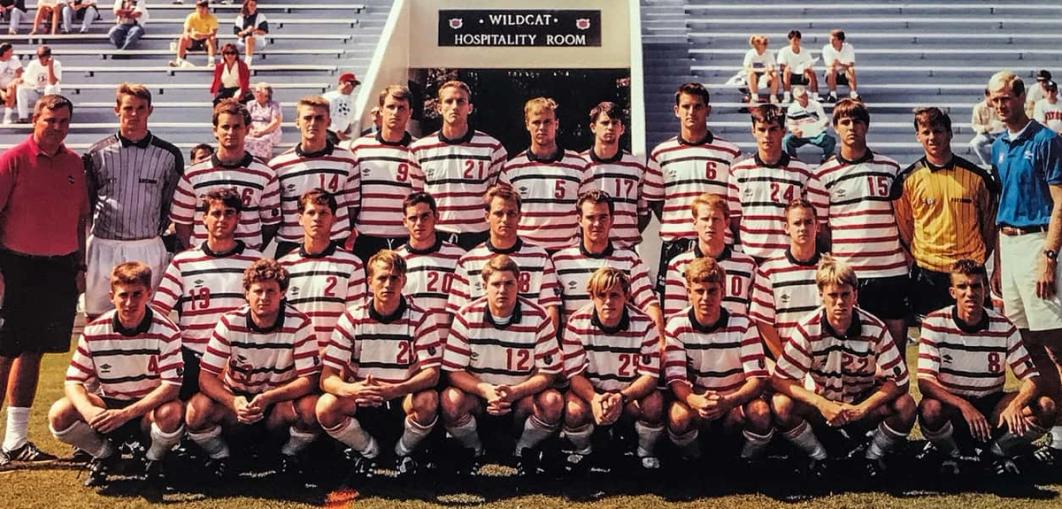
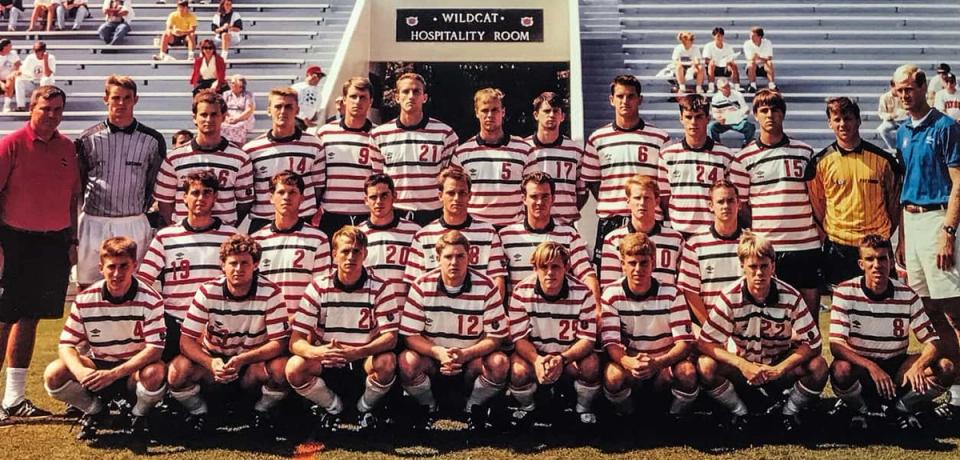
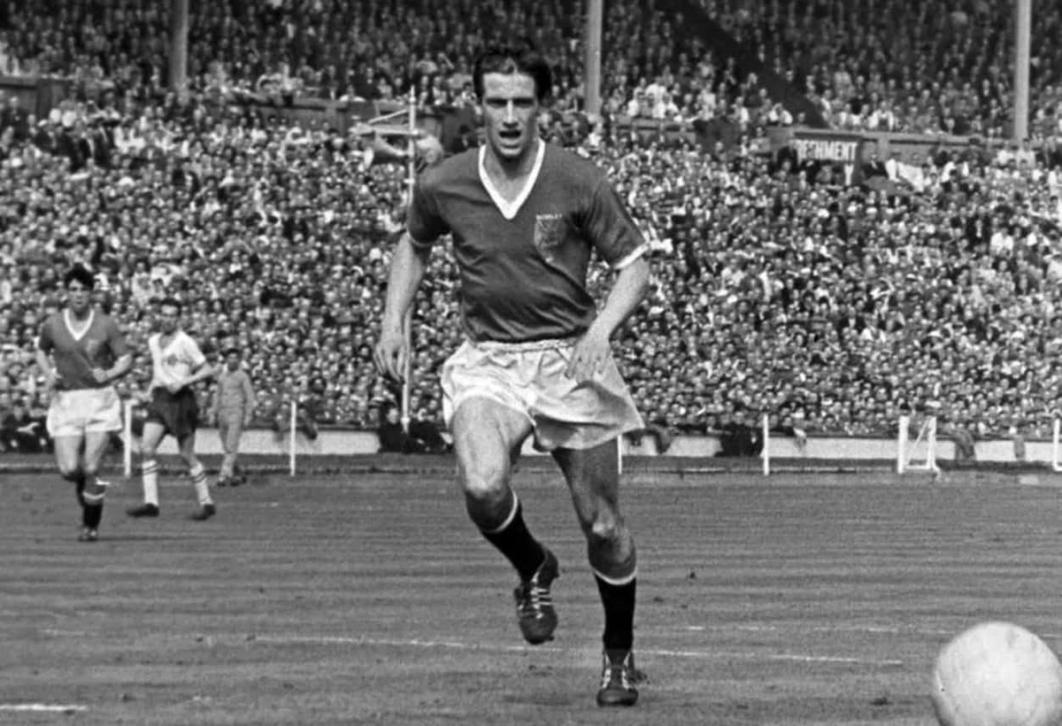
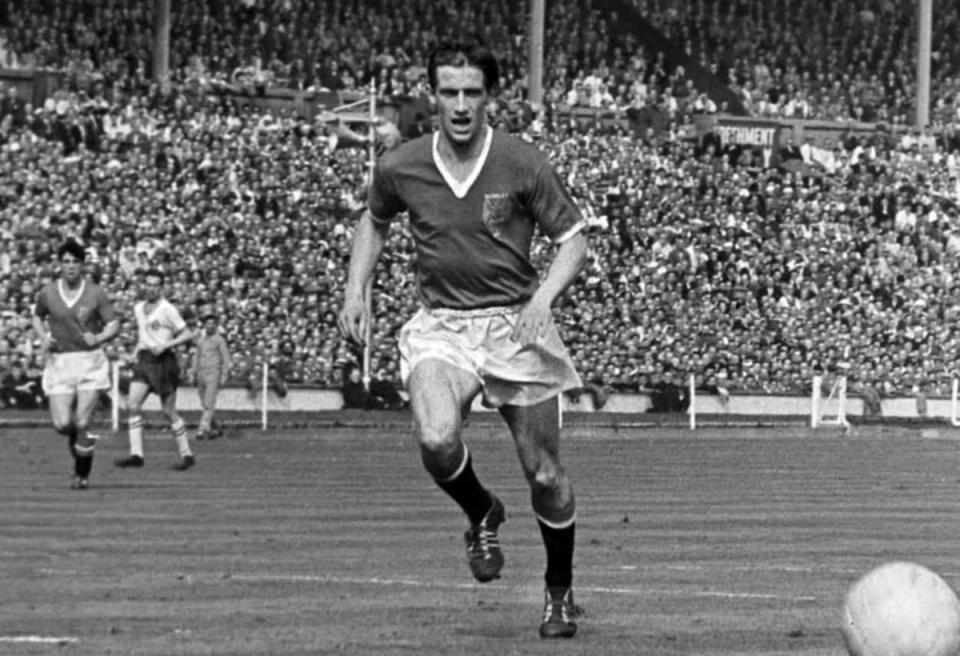
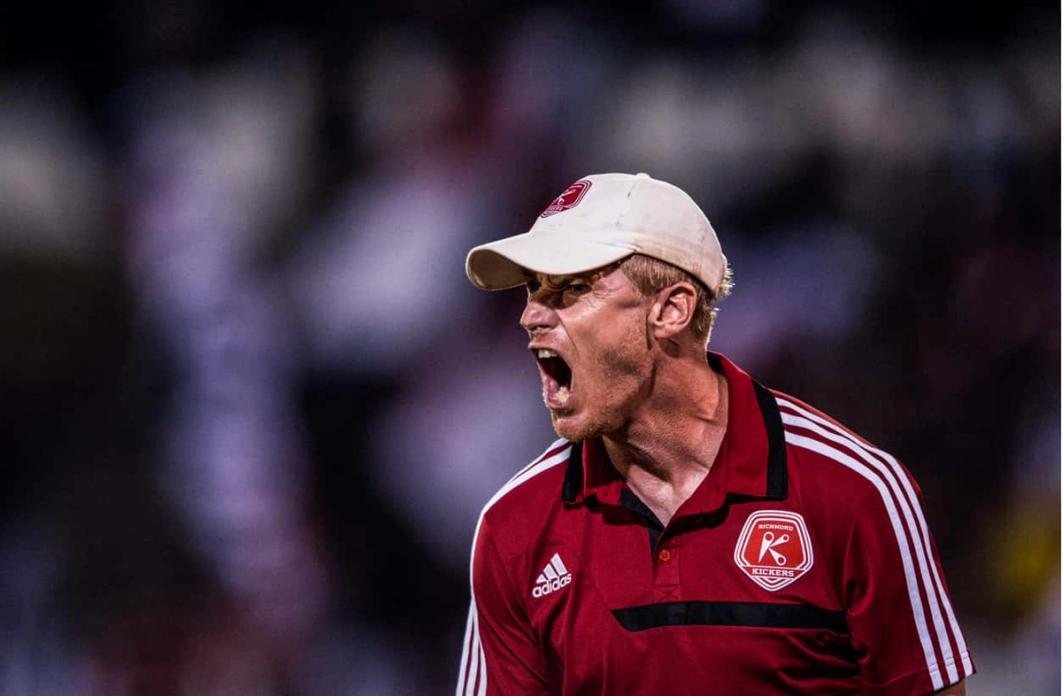
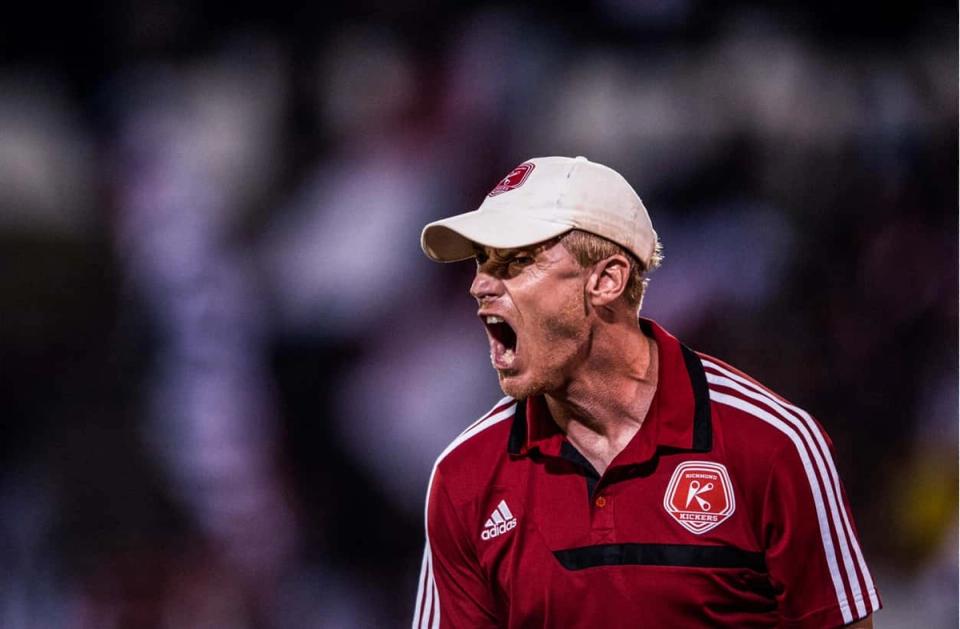
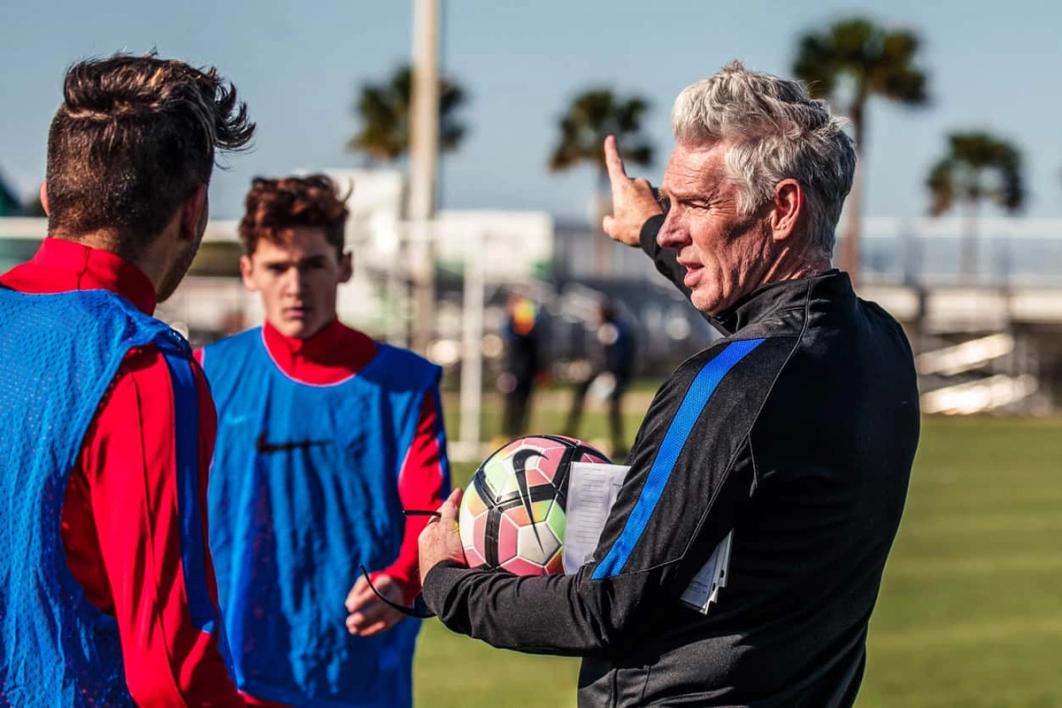
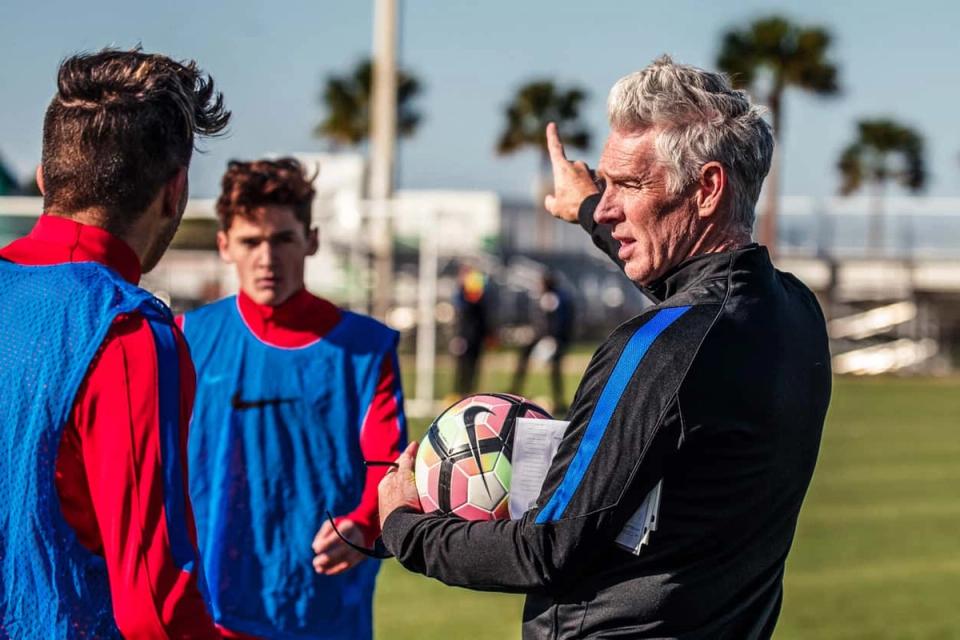
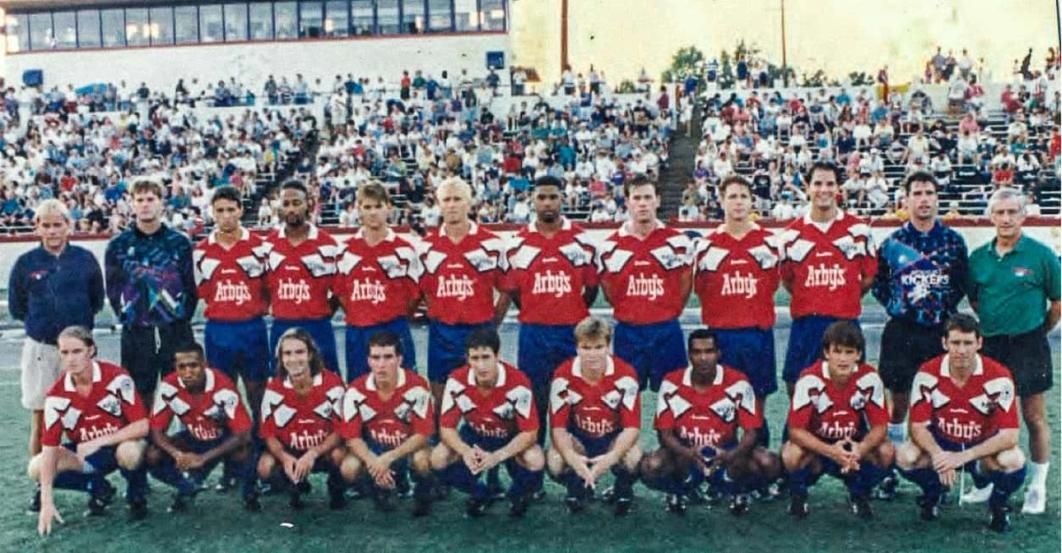
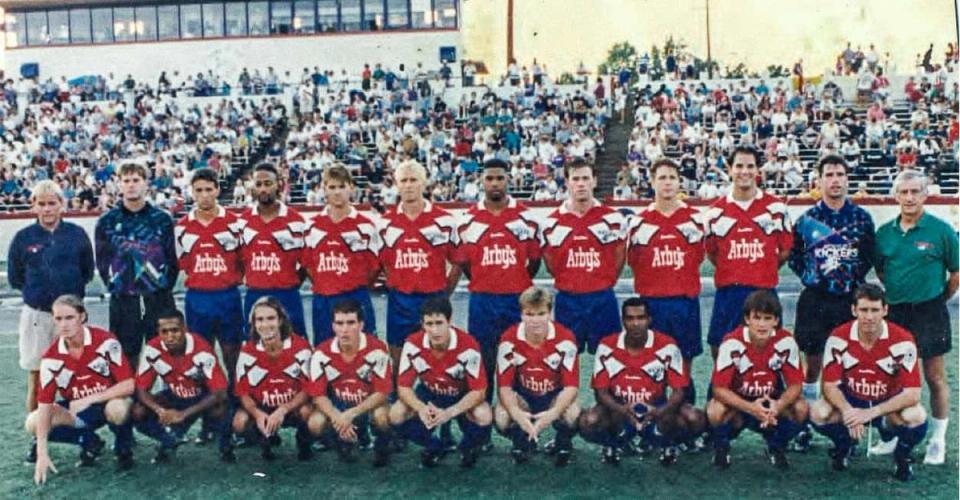
Rumors swirled in 1995 about a new shot at a big-time professional league in the States. The old North American Soccer League’s magnificent collapse was still fresh and Major League Soccer was just a promise. A tease. It was in this fateful year, on the cusp of a new frontier for the game in America, that a top crop of young players, talented amateurs from the country’s best college programs, gathered in Virginia and caught what striker Rob Ukrop calls “lightning in a bottle” en route to the 1995 U.S. Open Cup crown.
“It was really a bunch of good guys,” said Richie Williams, the five-foot-four midfield engine, who went on to earn 20 caps for the U.S. Men’s National Team before becoming an assistant coach for the Stars and Stripes and in MLS. “We were just trying to get a chance at being pros in a country where there weren’t a hell of a lot of pro options.”
Goalkeeper Jeff Causey, Williams’ teammate from the University of Virginia, was selling mobile phones for the summer after graduation when a call came in.
“[Williams] said they were putting something cool together in Richmond and they needed a keeper,” recalled Causey, today a certified retirement planner living in Massachusetts. “When I heard all the names, I thought ‘wow, there’s gonna’ be a lot of quality in this team – NCAA champions and All Americans from all over – and I want in."
The heart of the team came from Bruce Arena’s early-90s University of Virginia program that won four straight NCAA D1 titles and lost only ten games – compared to 84 won – between 1991 and 1995.
“A lot of the best players at the time were college kids,” said Ukrop, a tall and physically imposing All-American forward out of Davidson College and a native of Richmond. You couldn’t miss him on the pitch. He was a full foot taller than Williams and wore eye black on game days to cut the glare. “Technically we were amateurs, but we set that team up to play right and we had a lot of talent.”
Brian Kamler, out of Omaha’s Creighton University, was the rare player in the team from west of the Mississippi. “There were rumors that MLS was going to start the next year, but who knew really?” the man they called Kam said on an afternoon off from his job working logistics for a trucking company in Green Bay, Wisconsin. “Guys like us, from the big college programs, we really wanted to make a showing. There was competition built into the squad that way, but it was also clear that everyone was doing everything for the team.”
It all just clicked right off the bat, according to the ’95 Kickers, who delight in talking about those days 25 years ago. “We just gelled from the start,” said Ukrop, who had a short stint with the New England Revolution and scored the club’s first-ever goal when MLS got rolling the next year.
“The chemistry was there right off,” added Kamler, in full agreement. “Nobody was shy. There was a special kind of vibe. If a guy needed to get back, you just told him straight up, ‘Hey, get your ass back."
“The team was put together in a matter of weeks,” added Kamler, who went on to have a decade-long career in Major League Soccer, most notably with early league dynasty D.C. United. “I’ve never seen that before or since. After that first week, everyone was hanging out and like best of friends. It was really a unique thing that it happened so fast.”
One key to the quick chemistry, that rare tension that only special teams have, was the coach. The name Dennis Viollet carried a lot of weight in his native Manchester, England. He survived the Munich Air Disaster in 1958 and scored 179 goals in nine seasons with Manchester United. He played twice for England, scoring once.
“But he [Viollet] was the most unassuming figure you’d ever meet in you whole life. So quiet and so humble,” said Leigh Cowlishaw, the team’s English-born winger who went on to coach the Kickers for 19 seasons. Ukrop, current club Chairman and CEO, agreed: “[Viollet] was just an incredible gentleman. We didn’t even know it, but he was letting us learn on our own. He gave us the respect to find our own way.”
Violett, who passed away in 1999 at the age of 65, may have been the quintessential English gentleman, but that doesn’t mean he wouldn’t let you know when you weren’t going about your business the right way.
“I remember once I missed a real sitter,” Ukrop said, his head shaking. “I was open at the far post and I just straight-up missed an easy chance. Next thing I know my number’s on the board and I’m out. It was a quiet message, Dennis didn’t say anything, but I got the point. I wasn’t living up to the standard he expected.”
Training sessions revolved around small-sided games. It wasn’t a lot of tactical work, and just one lung-busting fitness session on Monday mornings, “He let the game be the teacher,” said Cowlishaw, who stayed with the Kickers after 1995, playing 152 times before moving to the coaching ranks. “We did a lot of five-a-side and the competition was fierce in those little games. Everybody in that 1995 team was a winner.”
Chemistry was fostered off the field as well as on. These were young men in the prime of their lives. They were out of school and away from home for the first time. “We all lived together in the same apartment complex – the whole team – and we had a lot of fun that year,” said Causey, a future MLS goalkeeper who was given the nickname Tex by Bruce Arena during his UVA days.
“We all knew each other, either as teammates or opponents,” added Williams. “We had a lot of fun hanging around the pool in the complex where we all lived."
Ukrop doesn’t remember the nightlife getting in the way of their play. “We’d go to dinner, go to the bars, go dancing,” he said. “But when it was time to play, we were all business.”
On the field, the 1995 Kickers were indomitable. They won the USISL Premier League (today’s USL League 2 – formerly the Premier Development League or PDL), edging Florida-based Cocoa Expos in the league final. As momentum began to pick up, talk of a ‘Double’ began to seep into training and among the boys out by the pool. “We knew it would be a challenge to win two titles,” Williams said. “But we wanted to win trophies and everything that was out there to be had.”
And those Kickers also had a little chip on their shoulder, according to Causey, “We knew we’d be mixing in with the pro players from the A-League in the Open Cup and we were excited to take on the big guys. We wanted to show them up.”
Richmond rolled over Fairfax Spartans in their 1995 Open Cup opener. A club with a proud tradition and founded by John Kerr Sr., the Spartans were in trouble from the start. But coach Violett, who played in his share of FA Cups in England, knew the dangers of one-and-done competition.
“He [Violett] was really serious about it and he told us before the game, ‘the longer you leave a team like that hanging around, it’s just going to get tougher and tougher,’” remembered Kamler. The sage advice paid off -- the Kickers ran rampant in a 6-2 win.
Atlanta Ruckus were next up. This was a full professional team from the A-league, the top rung of American soccer at the time. “I remember it well,” said Ukrop, who had his cheekbone broken in the game by the elbow of John Doyle, a 53-time capped defender for the U.S. Men’s National Team, who played in the 1990 World Cup. “We ended up winning, but I was out for ten days and couldn’t finish the game with that broken cheek.”
The Kickers’ win against one of the biggest-spending teams of the era was fully deserved, and it was followed by a tense 4-3 win over the Chicago Stingers in the Semifinal.
And that was that. The Richmond Kickers, a gang of college kids who didn’t like losing, were into the U.S. Open Cup Final. And while memories of the build-up have faded, they can all recall, in great detail, that Final in El Paso, Texas.
“There was a mariachi band to greet us at the airport,” remembered Ukrop with a chuckle. Causey added: “It was the farthest I’d ever travelled. It took forever to get there. We were just a few feet from the Mexico border.”
The heat of the day was particularly memorable. “It was the hottest temperature I’ve ever played a soccer game in,” said Cowlishaw, shaking his head all these years later. Ukrop concurred: “It was the hottest I can ever remember being, but none of us wanted to admit it. We were young and stupid and in our early twenties, so we felt invincible.”
The Kickers, decked out in red, white and blue kits, were the underdogs.
They were playing an El Paso Patriots side on their own home field with 13,000 or so fans in the stands – hardly any of them (family and friends aside) were pulling for the young visitors. The Patriots were a full professional team from the top division, and they had a smattering of players with experience in the Mexican first division.
Salvador Mercado, once of Chivas Guadalajara, was chief among the Mexican stars. The Patriots also played a short-passing style that was new to many of the Kickers. “They were really fast and quick on the ball,” Causey said. “It was the first time I’d played a team like that.”
The game, played in 90-plus degrees of South Texas heat, turned into an epic. It needed two periods of extra-time and eventually penalties to settle it. The Kickers played most of the second half a man down after Kevin Scott was sent off for a high, hard challenge.
Ukrop’s opening goal, from close range after some fine approach work from Cowlishaw, was equalized late in the second-half. The smart money was on Richmond collapsing in extra-time. “I had a lot of work to do in that extra-time period; I was very busy. The game just seemed to go on and on,” remembered Causey, who made a pair of diving saves in the dying moments to keep the score level.
“In overtime I was cramping so bad, and we had used both of our subs, so I had to go up front and just try to hold the ball up,” said Richie Williams, the diminutive midfielder who likely never played target-man before or since. “I was done and couldn’t do the work in midfield anymore. I was just dead.”
In the end, the Kickers endured. “It’s funny, we were just one of those teams that always found a way to win,” Cowlishaw explained. “Didn’t matter what we were up against.”
Causey made two more big saves in the shootout and Michael Brady, one of the team’s older players and future Duke and American University coach, scored the decisive penalty. The win sparked massive celebrations on the pitch before the players, drained after 120 minutes and a shootout in brutal heat, collapsed in exhaustion. “This was before you had IVs on the sideline,” Ukrop said. “We went straight for the water bottles.”
After some recovery back at the hotel, those with an interest in celebrating gathered in the lobby. Causey picks up the story: “Me and some of the guys crossed the border into Mexico that night on foot. I remember, maybe, there was a nightclub. I’m pretty sure I remember a bar too,” he laughed. “It’s safe to say we had a pretty good time.”
The ’95 Kickers are cagey about the details. But they had every reason to celebrate long and hard. Not just the Open Cup triumph on the day, but an historic double by a group of amateurs who found that little bit of magic, so rare in sport. And life.
Most of the starting XI on that hot day in El Paso went on to have careers in Major League Soccer, which – as promised – started up the next year. They went on win trophies and fulfill their big dreams of big-time pro ball. In 1996, MLS’s inaugural year, Williams, Causey and Kamler won another double with the league’s first dynasty – D.C. United.
But none of them seem to light up about it like they do when they revisit that wild ride of 1995, when they were young and playing the game they loved with their friends. All living together like a family. “We were a bunch of young guys who liked each other and liked playing with each other,” said Ukrop, nearing the end of his stroll down memory lane. “And that can take you a good long way.”
Jonah Fontela is editor-in-chief of ussoccer.com/us-open-cup. Follow him at @jonahfontela on X/Twitter.